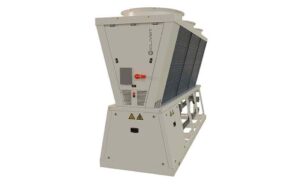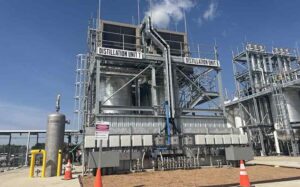ASHRAE in standards battle
9th February 2014 USA: ASHRAE is embroiled in a court action in the USA which could have far-reaching implications for our access to industry standards.
USA: ASHRAE is embroiled in a court action in the USA which could have far-reaching implications for our access to industry standards.
ASHRAE which publishes a large number of standards and codes for the worldwide hvacr industry has joined with ASTM International (the American Society for Testing and Materials) and the National Fire Protection Association (NFPA) in a lawsuit accusing a website of copyright infringement.
The lawsuit was filed by the three standards development organisations (SDOs) in the United States District Court for the District of Columbia against the website Public.Resource.org, a non-profit organisation that enables companies and individuals to download standards free of charge.
The SDOs claim copyright infringement and further claim that the lawsuit has been brought to ensure “that the development of codes and standards in the United States is done at the highest levels of excellence and to protect public health and safety”.
The plaintiffs insist that for more than a century, both the private-sector as well as government entities have relied on mission-driven, self-sustaining, independent, not-for-profit SDOs to develop “voluntary consensus standards.” These standards include a wide variety of highly technical works, from product specifications and installation methods to safety codes and standards.
The SDOs say that they underwrite the substantial costs of developing standards, in whole or in significant part, by relying on revenues from the sales and licensing of their copyrighted standards. This funding model allows SDOs to remain independent of special interests and to develop up-to-date, high quality standards.
Public.Resource.org is operated by Carl Malamud, a campaigner for open government who insists that standards that are incorporated into regulations should be freely available to all who are governed by them.
His website has been active for some years and first fell foul of the air conditioning and refrigeration standard-makers last year when it posted the 1985 standard on ductwork leakage online. The Sheet Metal and Air Conditioning Contractors National Association (SMACNA) claimed breach of copyright and threatened a lawsuit if it was not taken offline. Malamud sued for relief claiming that posting the standard did not infringe on SMACNA’s copyright. He won, with SMACNA agreeing to let him post some of their older standards online.
The new ASHRAE/ASTM/NFPA lawsuit claims “Public Resource offers no effective alternative, but only seeks to undermine and destroy a funding model that works and that sustains a public/private partnership that has served the public interest so well. SDOs already work with governments and provide free access to many standards on the Internet.”
Copyright Act amendment
Meanwhile, the question of whether model codes and standards developed by SDOs and subsequently enacted into law should be protected by copyright was one of the topics discussed in recent hearings into proposed US government reforms on copyright and the internet.
A petition by Carl Malamud proposing an amendment to the US Copyright Act has received significant legal backing. His Edicts of Government Amendment states:
“Edicts of government, such as judicial opinions, administrative rulings, legislative enactments, public ordinances, and similar official legal documents are not copyrightable for reasons of public policy. This applies to such works whether they are Federal, State, or local as well as to those of foreign governments.”
“This language comes directly from Section 206.01, Compendium of Office Practices II, U.S. Copyright Office (1984). It reflects clear and established Supreme Court precedent on the matter in cases such as Wheaton v. Peters, 33 U.S. (8 Pet.) 591 (1834) and Banks v. Manchester, 128 U.S. 244 (1888). The law belongs to the people, who should be free to read, know, and speak the laws by which they choose to govern themselves.”
Whether or not the suggested amendment is adopted within the revised Copyright Act, US pundits predict that the revisions will limit the ability of SDOs to restrict access to model codes and technical standards after they have become law.







